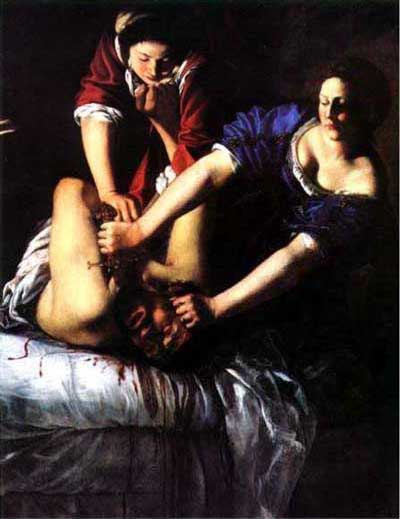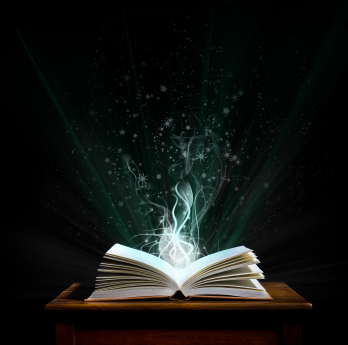
Let me begin by saying, I don't in any way condone actual violence. It's not right to hurt people. We learn that before we get to kindergarten, and hopefully the lesson stays with us for the rest of our lives.
That being said, I can really enjoy fictional violence. I like action movies. I like swordplay. I like epic battles of good vs. evil. I also like the more complicated and emotionally charge examples of fictional violence (think Macbeth), such as the really horrific painting featured in this post. The artist, Artemisia Gentileschi, was sexually assaulted by one of her father's students, and it seems pretty clear that she had "issues" with men who would victimize women. In most of her contemporaries' versions of the Judith slaying Holofernes story (it was a really popular subject in the late Renaissance), Judith looks away from her sword and seems limp or apologetic. Here, she's a determined assassin. There's a message in this picture.
Violence can be very helpful to the novelist in both plot and character development. Like sex, it has no place if it's simply gratuitous. Leave that kind of action to the not-so-good movies. But human beings are inherently violent. We're really good at fighting, and we struggle to overcome our worser selves. The best novels are ones in which we see human truths, and no one can argue that human history is a story of universal peace and light. So, we'd be lying to ourselves and the reader if we never reveal that kind of darkness. It makes a beautiful and terrible contrast to the light.
Of course, some literature is meant to be gentle. Fisticuffs and bloodied weapons don't belong everywhere. Some violence is not physical but emotional, spiritual, or psychological. Sometimes there is no violence per se, but there is still conflict, and that's good. Conflict is essential to fiction, because it's elemental to human experience.
When we portray violence of any kind, we novelists have to use the same sense and sensibility that we employ in portrayals of sex: what is the appropriate balance between good writing and good taste? How much do we show and how much do we leave implied? What will cause our audience to cringe (that's okay) and what will make our readers look away (that's bad)? Do we convey the psychic weight of the violence as well as the physical action?
Do you find it tough to write violence? Do you avoid it, embrace it, flirt with it? What are your strategies for getting the balance just right? I'd love to hear. Peace.

 RSS Feed
RSS Feed